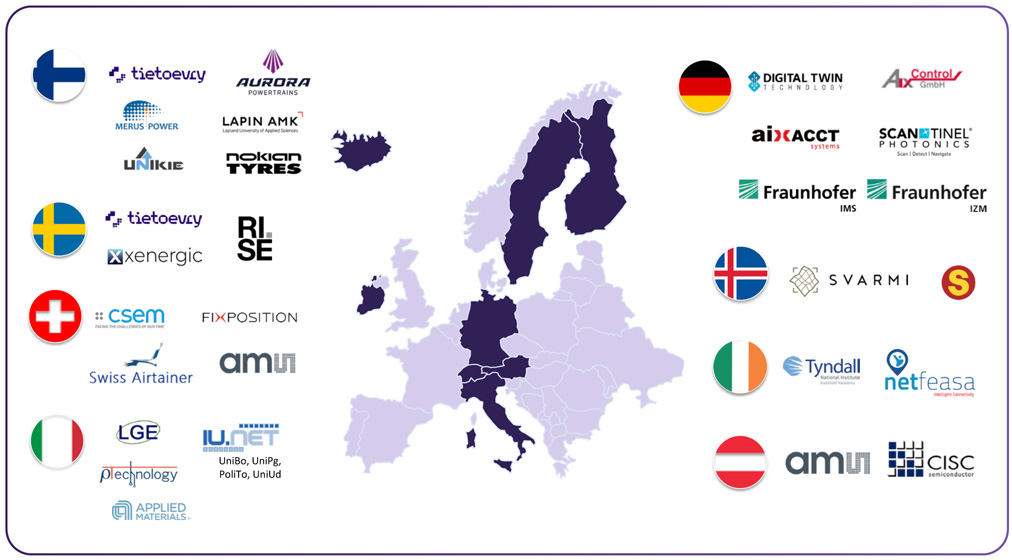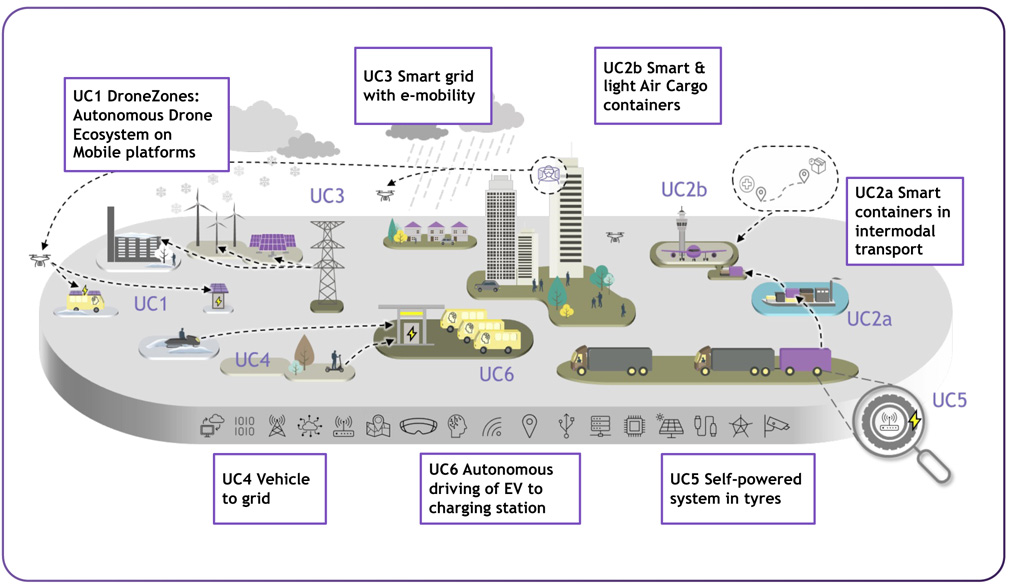An ECSEL JU funded project with 28 partner organizations from eight European countries is paving the way for an emerging new European business and technology ecosystem, aimed at tackling various energy related challenges for the future of mobility. The project accelerates Europe's decarbonization goals for 2050.
Energy ECS (Electronics, Components and Systems) is an extensive 3-year project with an overall budget of 33 M euros. It is co-financed via the ECSEL Joint Undertaking of the EU Horizon 2020, national funding agencies of the participating countries, and the consortium partners.
The project consortium consists of 14 small and mid-sized enterprises, 8 large enterprises and 6 research and technology organisations from Finland, Austria, Germany, Ireland, Iceland, Italy, Sweden and Switzerland. The consortium brings together all the players needed to develop integrate technology platforms and bring about the field-testable solutions.

The advancement of e-mobility is a key part of the green energy transition. Together with its direct role in reducing emissions, the adoption of e-mobility also has a crucial indirect role as a grid stability element. E-mobility accelerates the transition to wind and solar energy production, as well as enabling the efficient utilization of resources and physical assets, and thus reduces the use of fossil fuels in the energy mix.
The Energy ECS project, launched in June 2021, responds to these needs by developing a set of technologies to improve the digitalisation and energy footprint of e-mobility systems. The aim is to provide European business the know-how based on manufacturing capabilities combining hardware, software services and data. This combination enables interaction with other vehicles and smart mobility infrastructure: connection to the grid, intermodal transport, autonomous driving, data generation, and vehicles as service providers.
This project is also working to mitigate the challenges that electric vehicles pose on the energy system. The Energy ECS project will build on six use cases that represent different angles on future mobility and energy: enablers of new logistics modes, energy optimized and trackable intermodal transport, charging technologies and opportunities, safe and efficient operation of drones in urban environments, grid stability responding to bi-directional charging, and enablers of safe autonomous driving.

By 2030, the new technologies developed in Energy ECS are expected to generate turnover for the participating companies. In addition, the project is aimed at enabling increased market share and market leadership for the commercial partners. The partners represent a wide array of technologies including, for example, battery-charging electronics, grid and sensor power management, energy harvesting, real-time location controls and sensors. The R&D within the project will also apply trustworthy artificial intelligence, immersive technologies, IoT, ultra-low power technologies, advanced algorithms, battery life simulation models and software. All the technologies will be designed with cyber-security and reliability in mind.

About the Energy ECS Project
This project has received funding from the ECSEL Joint Undertaking (JU) under grant agreement No 101007247. The JU receives support from the European Union’s Horizon 2020 research and innovation programme and Finland, Austria, Germany, Iceland, Ireland, Italy, Sweden, and Switzerland.
Project coordinator: Tietoevry Finland
Website: www.energyecs.eu
Get in touch: info@energyecs.eu
Follow the progress: #energyecseu